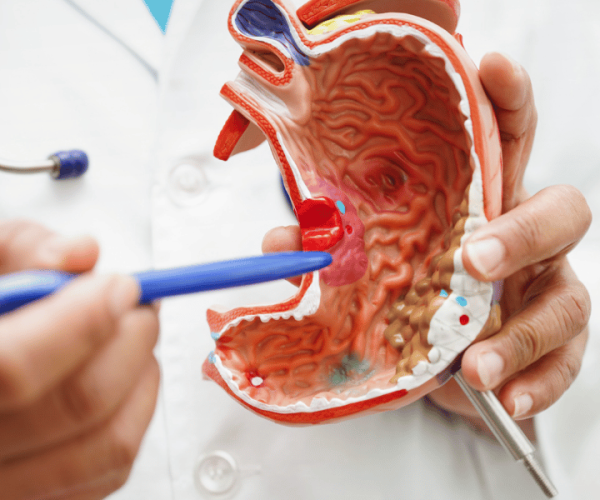Everything You Need to Know About Men’s Check-Up
- November 1, 2025
- By Bahadır Kaynarkaya M.D.
- 5846
- Health Blog

Regular health screenings help many men detect problems early — often before symptoms appear — and make it easier to manage conditions with timely care. A Men’s Check-Up is a focused, convenient health assessment that usually starts with a general practitioner consultation and may include blood tests, ultrasound and other imaging, and specialist advice.
Comprehensive examination programmes are offered for preventive purposes and for timely diagnosis. They can be particularly helpful during family planning or when investigating unexplained health issues.
Diseases rarely occur without warning: there are usually underlying causes or risk factors such as family history, lifestyle or age. A structured check-up helps identify these warning signs early, so you and your doctor can agree the most appropriate next steps and ongoing primary care.
Risk Factors for Diseases in the Male Body
Some risk factors are beyond our control — such as genetic and family history — while others are modifiable. Practical risks that contribute to ill health in many men include smoking, poor diet, low physical activity, excessive alcohol use and unmanaged high blood pressure. Occupational hazards and physically demanding jobs can also increase the chance of injury or long‑term problems.
Cardiovascular risk: uncontrolled high blood pressure and high cholesterol raise the risk of heart disease and stroke. Regular checks of blood pressure and cholesterol are key, particularly as men reach middle age — risk tends to rise with years and age. Metabolic risk: a sedentary lifestyle increases the likelihood of obesity and type 2 diabetes, conditions that are commonly detected through routine blood tests.
Reproductive and sexual health: many problems are asymptomatic. Men planning a family should discuss fertility and sexually transmitted infection screening with their doctor, as some issues only become apparent during family planning. If you have symptoms or a relevant family history, mention them to your primary care provider so appropriate screening can be arranged.
Other factors: prolonged stress and certain sporting or strength-training practices can lead to musculoskeletal or circulatory problems in some people — discuss any persistent symptoms with a doctor. As men get older, the risk of some cancers increases; a regular check-up helps monitor changes and identify risks early so timely care can be offered.
What Does a Male Check-Up Include?
A Men’s Check‑Up is a tailored, comprehensive assessment designed to pick up early signs of common conditions and to guide ongoing care. It normally begins with a consultation with a general practitioner who will review any symptoms, medication and family history and then recommend appropriate tests and specialist referrals.
Typical components are grouped below to make results and follow‑up clearer:
- Blood tests: fasting glucose (diabetes screening), fasting lipid profile (total cholesterol, HDL, LDL), complete blood count and basic metabolic panel (kidney function, liver enzymes, albumin). Abnormal results may prompt lifestyle advice, medication or further tests.
- Infection and immunity screens: HBsAg and anti‑HBs (clarify antigen vs antibody), other serology as needed — useful for vaccination status and infectious disease screening.
- Inflammation and risk markers: C‑reactive protein (CRP), ESR to highlight inflammation or increased cardiovascular risk.
- Cardiac checks: blood pressure measurement, ECG to detect rhythm issues, and cardiology consultation where indicated — especially if you have high blood pressure, high cholesterol or a family history of heart disease.
- Imaging: chest X‑ray and ultrasound (abdominal, pelvic or urinary tract) when clinically indicated — these help assess organ structure and detect abnormalities that blood tests cannot show.
- Specialist consultations: urologist and cardiologist reviews are common for men with relevant risk factors or symptoms; dental and GP reviews ensure holistic care.
- Screening tests: faecal occult blood testing and age‑appropriate cancer screening (discuss colonoscopy or PSA testing with your doctor if you may need them based on age or family history).
If a test returns abnormal, your doctor will explain what it means and recommend next steps — for example, lifestyle measures, repeat blood tests, specialist referral or imaging. Common focuses are blood pressure control, cholesterol management and screening for prostate or colorectal issues when appropriate.
Would you like to find out which tests are suitable for you or to learn more about check‑up programmes in Istanbul? Complete the enquiry form below and our healthcare providers will contact you to discuss personalised options and expected turnaround times.
Check-Up Programs by Age
Check-ups are tailored by age to focus on the most relevant risks. Below are typical recommendations by life stage; individual needs may vary and your doctor or provider will advise what screenings and tests you may need based on personal and family history.
20–39 years: baseline health checks — blood pressure, cholesterol and blood sugar testing, sexual health and fertility discussion if planning a family, and advice on lifestyle and injury prevention.
40–49 years: increased focus on cardiovascular screening (blood pressure, ECG if indicated, lipid profile) and consideration of hormone checks such as testosterone when symptoms suggest; men in this age group are often advised to discuss prostate risk with their doctor and arrange any appropriate cancer screening based on risk factors and family history.
50 years and over: routine screening for colorectal cancer (options include faecal immunochemical tests or colonoscopy depending on national guidance and family history), regular blood pressure and cholesterol monitoring, and prostate screening discussion (PSA testing where appropriate). Frequency of these screenings is guided by age, years of risk and individual circumstances — your primary care doctor can recommend whether annual checks or longer intervals are best.
Remember: screening schedules differ between countries and providers. If you are unsure which screenings are right for you, consult your primary care provider or a specialist — they will consider age, family history and other risk factors to propose a personalised programme.
Comprehensive Male Health Check-Up in Turkey
A check‑up is an efficient way to assess your health, rule out or detect serious conditions early and plan ongoing care. Many international patients choose Turkey for comprehensive programmes because leading clinics offer coordinated services for overseas visitors — from accredited specialists and comprehensive tests to international patient coordinators who arrange transfers, interpreters and accommodation.
Typical benefits of undergoing a check‑up with an experienced provider include access to a full range of blood tests and imaging (helpful for assessing kidney, liver and heart function), streamlined scheduling of specialist appointments, and clear follow‑up plans so you can continue care with your local doctor after you return home.
You can undergo a check‑up at various clinics in Turkey, including:
- Acibadem;
Most conditions are easier to treat when detected early, which is why regular health screenings are important for men’s health. If you are considering an international check‑up, ask about accreditation, what tests are included (for example prostate and cancer screening where appropriate), expected turnaround times for blood test results, and how follow‑up care will be co‑ordinated with your primary care doctor.
Related Blogs

- October 25, 2025
Celebrity Hair Transplants: The Ultimate Guide.
Hair loss doesn’t discriminate—even the rich and famous aren’t immune to thinning locks and receding hairlines. In recent years, celebrity.
Read More
- October 29, 2025
Affordable Countries for Gastric Sleeve Surgery
Finding an affordable option for gastric sleeve and other weight loss procedures can be confusing. Cost is important, but so.
Read More